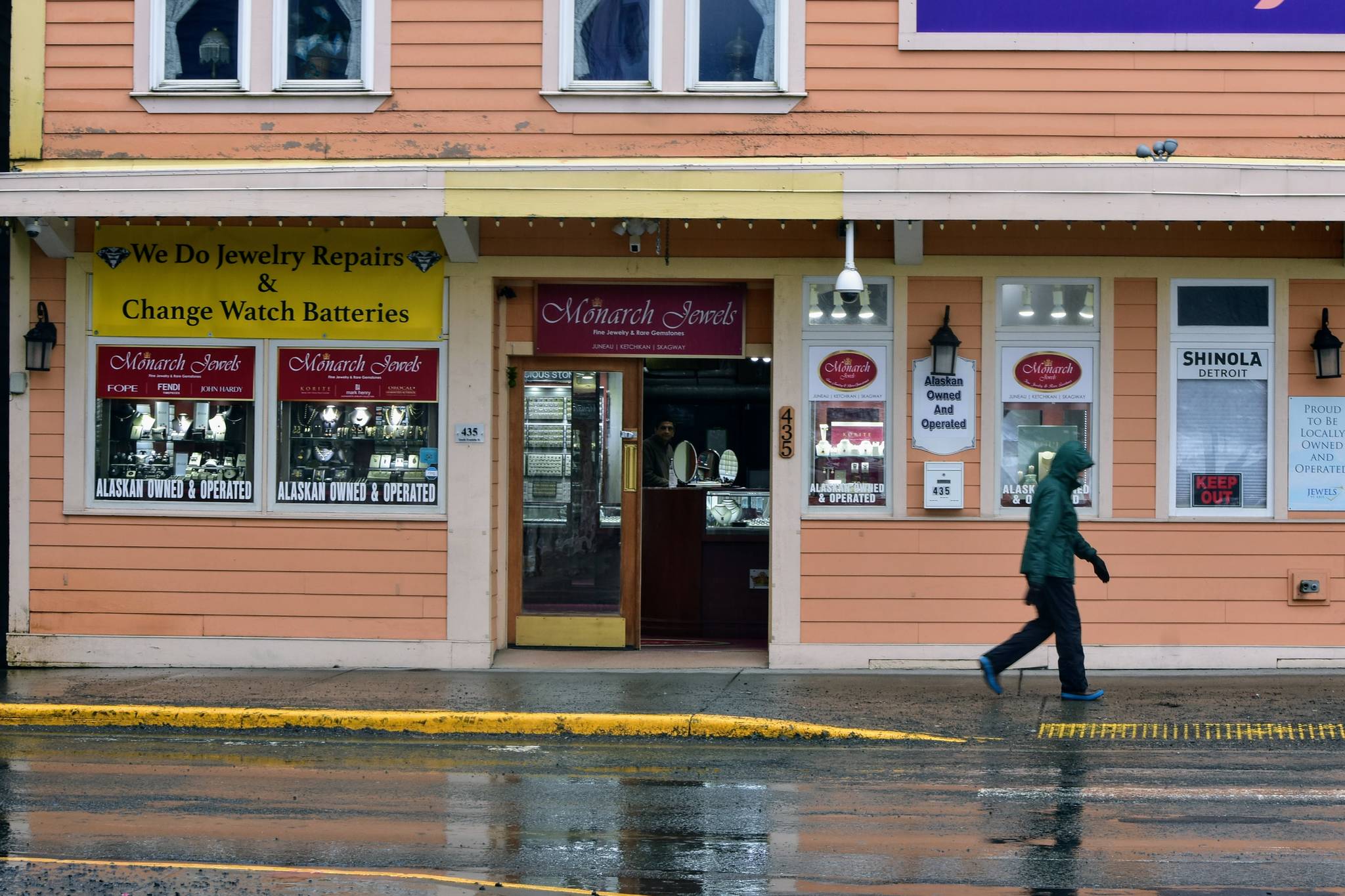A group of cruise-reform activists in Juneau submitted three ballot initiatives on Monday they hope will appear on the city’s next municipal election which would put various limits on cruise ships in the city.
Even as lawmakers and business groups are pushing to bring cruise ships back to the state, some feel Alaska’s break from cruise ships could be a good thing. Karla Hart, a Juneau resident and co-founder of the Global Cruise Activist Network, said in a phone interview Tuesday the pandemic had paused the tourism industry in Alaska but not the growth of the cruise ship industry overall.
“It’s like a big cork, and as soon as it goes, we’re going to get flooded again,” Hart said. “Not taking advantage of this opportunity to rethink what we’re doing seems shortsighted.”
“Overtourism” as Hart called it, was an acknowledged problem in Juneau before the pandemic, she said, and the city had started a visitor industry task force to address residents’ concerns. The initiatives would give Juneau voters the opportunity to try to strike a balance between the benefits the cruise industry brings and its dominating presence over the community, Hart said.
One initiative would establish cruise ship hours of 7 a.m.-7 p.m., outside of which ships carrying 250 passengers or more could not be docked or anchored in Juneau, according to a news release from Hart. Another would ban all cruise ships with 250 passengers or more on Saturdays and the third would entirely ban cruise ships larger than 100,000 gross tonnage after Jan. 1, 2026.
Activists will have 30 days to collect just fewer than 3,000 signatures for each initiative once the city clerk issues the petition pages, according to the release.
According to regional development corporation Southeast Conference’s annual report Southeast by the Numbers in 2018, 90% of tourists arrived in Southeast Alaska by cruise ship, and the visitor industry made up roughly 18% of the regional economy for that same year. That gives the cruise ship industry a lot of political power, Hart said, and the industry is dominated by three large companies, Royal Caribbean International, Carnival Cruise Line and Norwegian Cruise Line.
“I don’t see any forward-thinking here to say look, does it make sense 75% of Alaska’s tourism industry is under the control of three individuals,” she said referring to the CEOs of cruise ship companies. “Ultimately, when it comes down to it there are three individuals that have tremendous power over the cruise economy in Alaska.”
Hart said cruises were taking tourists away from alternative forms of travel, adding that if Alaska had taken efforts to diversify its tourism economy the lack of a single industry wouldn’t be such an issue.
But while Hart is hoping the initiatives will help reshape the industry in the future, local businesses and government leaders are making a push to get cruise ships back in Alaska this summer.
On Friday, in the hangar of Wings Airways in Juneau, Gov. Mike Dunleavy held a press conference flanked by state and local lawmakers, business owners and cruise industry representatives to announce a major effort by the state to open the state to cruising. At the conference, Dunleavy signed a joint resolution recently passed by the Alaska State Legislature and drafted by Sen. Jesse Kiehl, D-Juneau, urging Congress and President Joe Biden to take action allowing cruise ships to resume sailing.
Currently, the Centers for Disease Control and Prevention has issued a no-sail order for cruise ships of a certain size, citing ongoing COVID-19 concerns. Another complication for Alaska is Canada’s decision to close to cruise ships, preventing certain ships from traveling to the state without breaking maritime law.
Alaska’s congressional delegation has submitted legislation to waive the law in question, the Passenger Services Vessel Act, and failing that, the resolution asks the president to use executive authority to bypass the law.
Speakers at Friday’s news conference, including Juneau Mayor Beth Weldon, emphasized the cruise industry’s impact on the rest of the Alaskan economy beyond the visitor industry and said cruise ships are essential to the survival of countless small businesses in the state.
That was similar to the message Midgi Moore, president of the Juneau Downtown Business Association had. Speaking to the Empire by phone Tuesday, Moore said the DBA hoped Juneauites would look at what the cruise industry had down for small businesses in Juneau when considering the initiatives.
In addition to her work with DBA, Moore runs her own small business, Juneau Food Tours, and said she was personally disappointed by the initiatives.
“It feels like we’re being kicked while we’re down,” Moore said, speaking for herself and not DBA.
Fewer cruise ship passengers would likely mean a reduction in tax revenues, Moore said, meaning less money for city services enjoyed by residents. Moore was also skeptical of the idea alternative forms of travel could provide the same number of tourists as cruise ships.
“What are they willing to give up?” Moore asked of the initiatives’ advocates. “The visitors aren’t going to be paying for it, the residents are going to be paying for it.”
Hart said she hoped the initiatives would provoke a conversation in the community about the future of the state’s visitor industry. The initiatives, she said, were not about shutting the industry down but about diversifying the economy.
“We have the opportunity to say let’s redistribute our tourism economy to better meet the economic and community goals and the needs of our state,” she said.
• Contact reporter Peter Segall at psegall@juneauempire.com. Follow him on Twitter at @SegallJnuEmpire.

